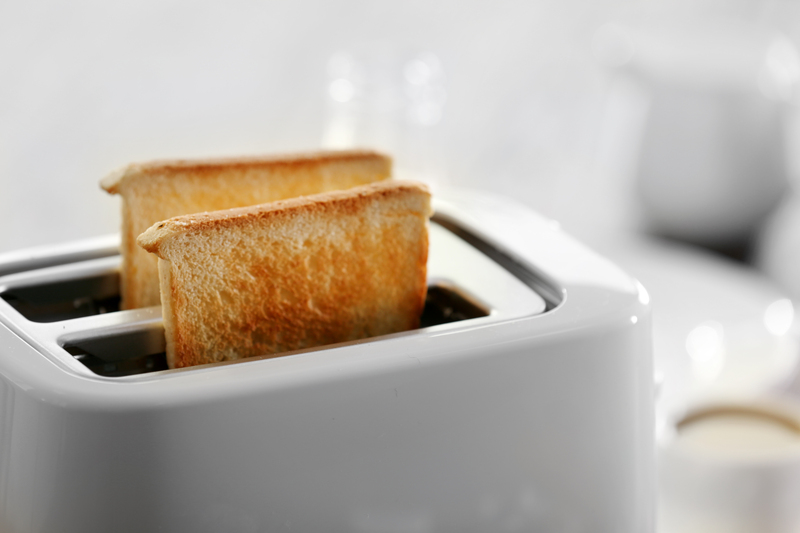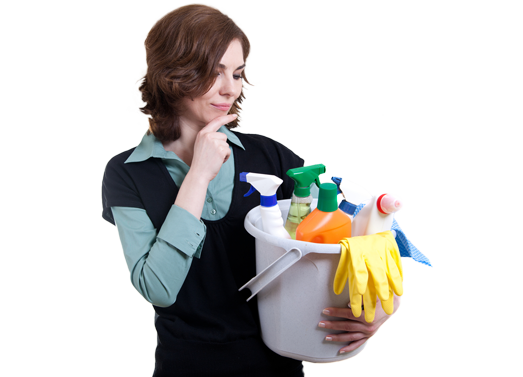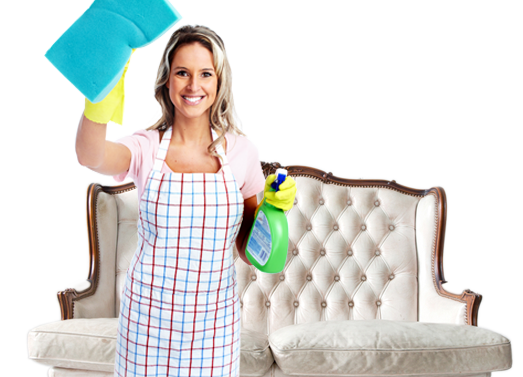Discover Top Methods for Cleaning Jewellery
Posted on 22/08/2025
Discover Top Methods for Cleaning Jewellery
Jewellery holds both material and sentimental value. From sparkling engagement rings to cherished necklaces handed down through generations, keeping your pieces gleaming is a proud delight for every wearer. However, daily wear, dust, lotions, and time can dull their shine. Discover the best methods for cleaning jewellery at home and learn professional tips to preserve brilliance and longevity. In this comprehensive guide, you'll find expert advice, DIY remedies, and care tips covering gold, silver, diamonds, pearls, and much more.

Why Cleaning Jewellery Matters
For many, jewellery is not just an accessory but personal adornment imbued with memories. Regular cleaning not only enhances appearance but also extends your pieces' lifespan. Dirt, fingerprints, and natural oils can erode gemstones and metals if left unchecked. Moreover, a clean piece sparkles with unmatched brilliance, making you feel confident whenever you wear it.
The Impact of Dirt and Grime on Jewellery
- Tarnish: Silver, in particular, reacts with air and moisture, developing a dark layer over time.
- Settings and Prongs: Buildup compromises gemstone settings, potentially loosening stones.
- Skin Sensitivity: Dirt trapped in intricate designs may cause skin irritation or allergies.
Understanding the importance of cleaning your jewellery sets the foundation for consistent care and preservation.
Top Methods for Cleaning Jewellery
Let's explore the safest, most effective techniques for restoring that lost sparkle to your precious pieces.
1. Warm Water and Mild Dish Soap
The simplest and safest method for most pieces combines two everyday essentials: warm water and mild dish soap. It's especially ideal for gold, platinum, and diamond jewellery. Here's how:
- Prepare the Solution: Mix a few drops of non-abrasive dish soap with warm (not hot) water.
- Soak your jewellery: Let items sit for 15-20 minutes to loosen dirt and oil.
- Gently scrub: Use a soft-bristled toothbrush or jewellery brush to clean.
- Pay attention to crevices where dirt accumulates (like under prongs or intricate designs).
- Rinse and dry: Rinse thoroughly with clean, lukewarm water. Pat dry with a soft, lint-free cloth.
Note: Never wash jewellery over an open sink to avoid accidental loss down the drain!
2. Professional Jewellery Cleaning Solutions
Many jewellers offer specialized cleaning products for jewellery, designed to be safe for different metals and stones. These solutions usually come with clear instructions and specialized brushes.
- Choose the Right Product: Ensure it's compatible with your jewellery type (for example, avoid harsh solutions on pearls or antiques).
- Follow Manufacturer's Guide: Soak, scrub, and rinse as recommended.
This method is effective for restoring the shine of gold, silver, diamonds, and gemstones while minimizing risk of damage.
3. Ultrasonic Jewellery Cleaners
Ultrasonic cleaning devices are a top choice for deep, professional-grade cleaning, especially for diamonds, sapphires, and rubies. How ultrasonic cleaners work: They use high-frequency sound waves to create bubbles that gently dislodge dirt and debris from hard-to-reach spots.
- Fill the machine: Add water and a small amount of cleaning solution as per the device's instructions.
- Place the jewellery: Submerge pieces in the basket, ensuring they don't touch each other.
- Run the cycle: Most cleaners take 3-10 minutes per cycle.
- Rinse and dry: Rinse pieces thoroughly and pat dry with a soft cloth.
Important: Not every gemstone or material is suitable for ultrasonic cleaning. Avoid this method for pearls, opals, emeralds, vintage jewellery, or pieces with glued settings as the vibrations can cause damage.
4. Cleaning Silver Jewellery: Specialized Techniques
Silver is notorious for tarnishing but easy to revive. Here are reliable silver cleaning techniques:
Method A: Silver Polishing Cloth- Rub gently: Use a specially treated silver polish cloth to wipe off tarnish.
- Buff to shine: Finish off with a clean, dry part of the cloth.
- Make a paste: Mix baking soda with a few drops of water into a thick paste.
- Rub gently: Use a soft cloth or sponge to apply the paste, clean, and rinse well.
Never use toothpaste, which is too abrasive and may scratch the surface.
5. Pearl and Delicate Gemstone Cleaning
Pearls, opals, turquoise, and other delicate stones require special care. Harsh chemicals and excessive moisture can ruin their luster or degrade their settings. Follow these careful steps:
- Wipe gently: Always wipe with a soft, damp cloth after wearing.
- Mild soap (if necessary): If deeper cleaning is needed, dip a soft cloth in a mixture of lukewarm water and a drop of mild soap. Gently wipe then air dry flat.
- Avoid soaking: Never submerge in water or use ultrasonic cleaners for pearls and porous stones.
Alternative and DIY Jewellery Cleaning Methods
Lemon Juice and Baking Soda for Brightening
Many people turn to pantry staples for natural cleaning. A combination of baking soda and lemon juice can help brighten dull metals (but avoid this on pearls or antique jewellery):
- Mix 1 tablespoon baking soda with 1/2 tablespoon lemon juice (solution will fizz).
- Apply gently with a soft cloth, then rinse and dry completely.
Cleaning Gold Jewellery with Beer
Yes, beer can be used for gold! Pour a bit of lager onto a soft cloth and gently rub smudged gold jewellery. Rinse with water and dry. Do not use on gemstones or pearls.
Jewellery Cleaning for Different Metals & Gemstones
Each material calls for a dedicated cleaning method to avoid accidental damage. Here's a breakdown:
- Gold: Soapy water and soft brushing suffice.
- Silver: Use silver polish or baking soda; store in anti-tarnish bags.
- Platinum: Similar to gold; polish with a soft cloth.
- Diamonds: Ultrasonic cleaners are fine, but avoid touching with fingers to prevent oil marks.
- Pearls: Careful wiping only; avoid all detergents.
- Emeralds, Opals, Turquoise: No soaking; just a damp cloth and air drying.
Common Mistakes to Avoid When Cleaning Jewellery
- Using abrasive cleaners or brushes: These can scratch soft metals and gem surfaces.
- Soaking porous stones: Absorbent stones like pearls, opals, and turquoise can absorb water and crack.
- Overusing ultrasonic cleaners: Some settings and glued stones can loosen and fall out.
- Using harsh chemicals: Household cleaners (bleach, ammonia, acetone) can erode finishes.
- Forgetting to check settings: Always inspect for loose prongs or stones before cleaning.
How Often Should You Clean Jewellery?
Frequency depends on use and the type of jewellery:
- Everyday wear pieces: Clean once a month to remove oils and debris.
- Occasional pieces: Check and clean every few months.
- Professional cleaning: Take valuable or antique pieces to a jeweller for an annual inspection and professional clean.
Professional Tips for Jewellery Maintenance
- Store separately: Use pouches, boxes, or anti-tarnish wraps to prevent scratching.
- Remove before chores: Always take off rings and bracelets before cleaning, gardening, swimming, or heavy lifting.
- Last on, first off: Put on jewellery after makeup, perfume, or lotions to minimize exposure to chemicals.
- Regular inspections: Get clasps, prongs, and settings checked by a professional to avoid stone loss.
When to Take Jewellery to a Professional Jeweller
While most pieces can be maintained at home, some scenarios call for expert attention:
- Persistent tarnish that won't come off
- Loose stones or damaged prongs
- Antique or vintage jewellery
- Restoration of delicate or rare gems
- Ultrasonic or steam cleaning for complex pieces
A trusted jeweller can offer ultrasonic cleaning, polishing, prong tightening, and more, ensuring your treasures remain safe and sparkling.

Frequently Asked Questions about Cleaning Jewellery
Can I use vinegar to clean my jewellery?
While diluted vinegar can remove tarnish from pure silver, it is generally too acidic for gold, gemstones, and especially pearls or porous stones. Vinegar can damage softer stones and erode certain finishes.
Is toothpaste safe for cleaning jewellery?
No. Toothpaste is abrasive and can scratch metals, gems, and especially gold and opals. Always use gentle, specially-formulated jewellery cleaners or homemade remedies recommended above.
How do I clean costume jewellery?
Costume pieces usually have glued-in stones and plated metals. Use a damp cloth only--avoid soaking or harsh cleaners to reduce risk of glue loosening or plating wearing off.
Conclusion: Keep Your Jewellery Sparkling
Whether it's a treasured family heirloom or your favorite daily accessory, following the top methods for cleaning jewellery will keep every piece looking exquisite. From basic at-home routines to professional care, choose the best techniques for your collection.
Regular cleaning, routine inspections, and safe storage practices will help maintain the sparkle and value of your jewellery for years to come. Make cleaning your jewellery part of your self-care ritual, and let every gem and metal shine as brilliantly as your memories attached to them!




